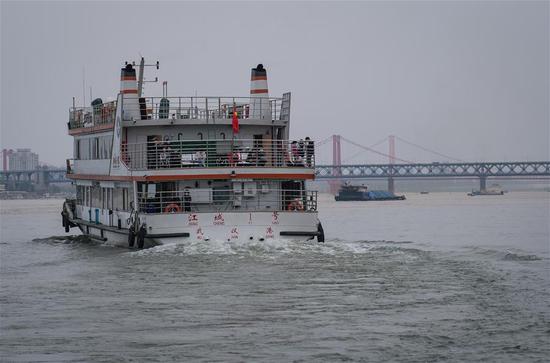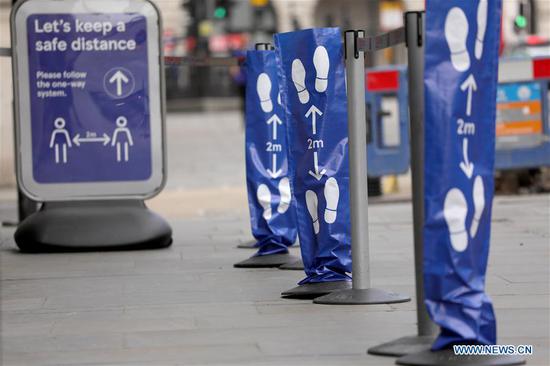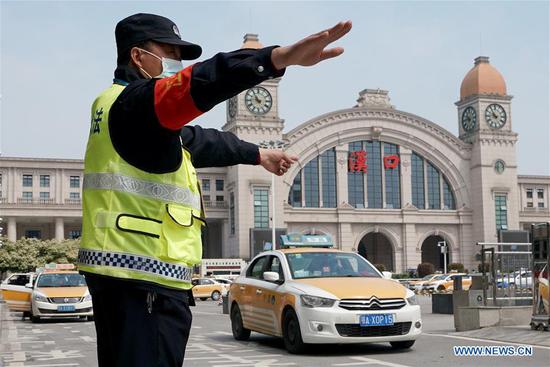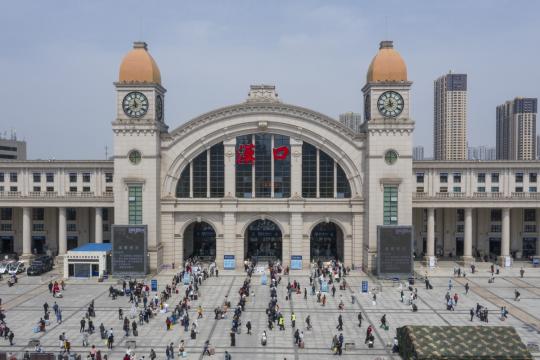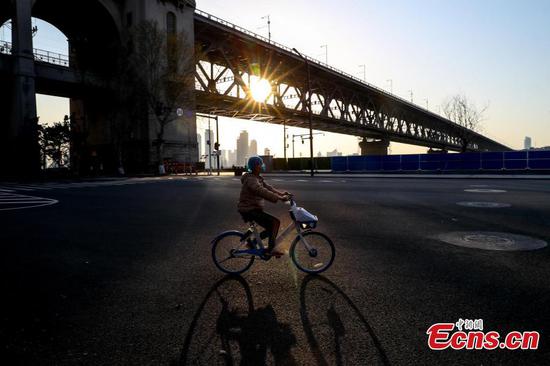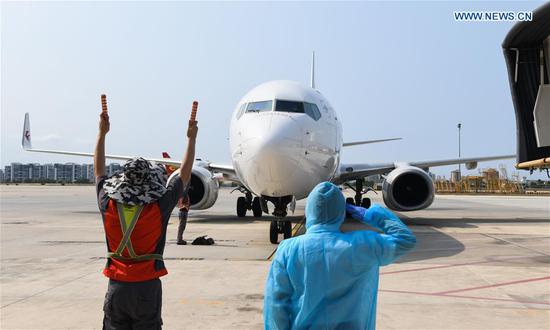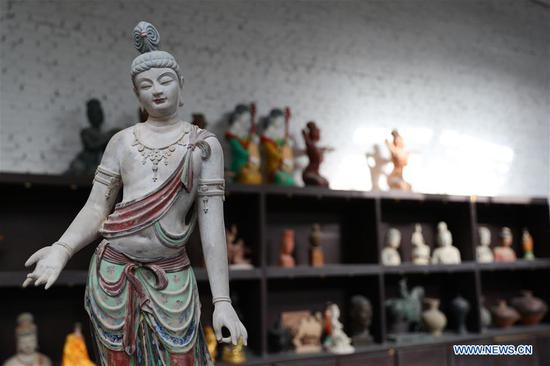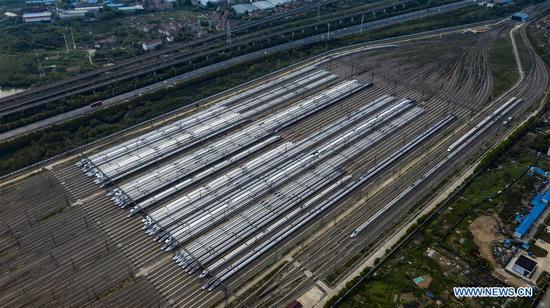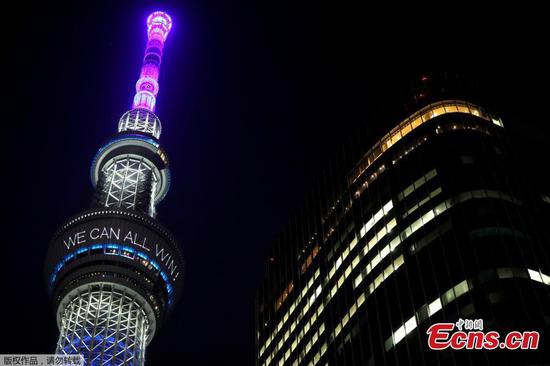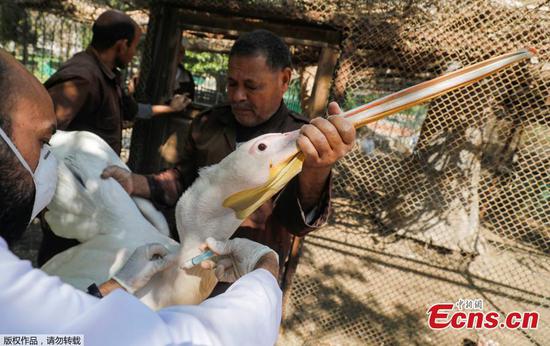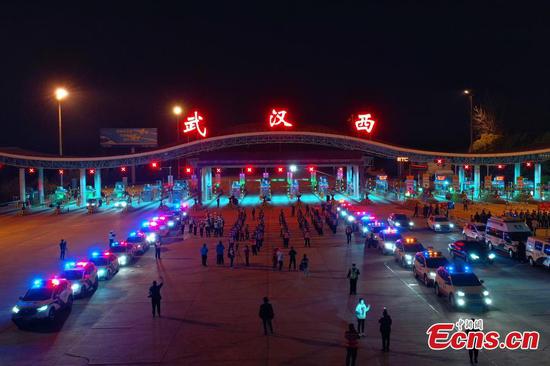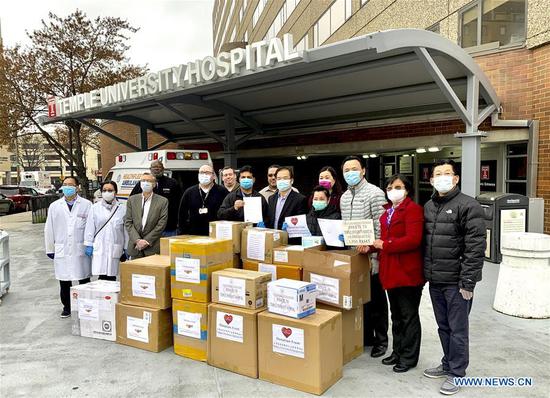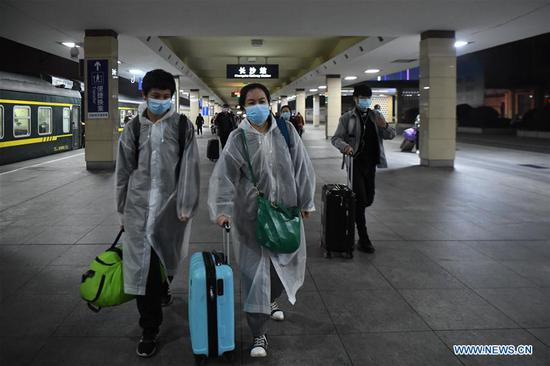
Containers are unloaded from a ship at a port of Qingdao, East China's Shandong province, on Feb 17, 2020. (Photo/Xinhua)
China's imports and exports improved in March on the back of better-than-expected industrial output recovery and sustained efforts to stabilize the global supply chain, the Ministry of Commerce said on Thursday.
Work resumption progress of the foreign trade companies has proceeded in an orderly manner with the production capacity recovery rate exceeding 70 percent in 76 percent of the key Chinese exporters, data from the ministry showed.
In March, the subindexes of the official manufacturing purchasing managers' index that gauges new export orders and imports rose to 46.4 and 48.4, respectively, from 28.7 and 31.9 in February.
China's imports and exports are set to show further improvement in March, based on information collected from local governments and various industries, said Gao Feng, spokesperson for the ministry. The General Administration of Customs is, however, yet to release the official foreign trade data for the first quarter of this year.
Gao, however, warned that the COVID-19 epidemic would weigh on the global economy and international trade.
Some foreign trade companies are already facing difficulties like delays, deferments and cancellation of dispatch of goods, orders, especially in consumer-related industries such as textiles and apparel. The government will continue to roll out supportive measures to help Chinese exporters overcome their difficulties and gain more overseas orders, he said.
Nanda Lau, head of Shanghai office at global law firm Herbert Smith Freehills, urged companies to monitor the local and global situation closely and accordingly adjust their work resumption plans, considering that the situation in China is improving steadily.
"The impact of the crisis may be felt by different areas of the business at different stages. Chinese companies should plan ahead for evolving situations," she said.
Governments around the world have instituted various relief policies for industries. Chinese companies should monitor these developments closely for those aspects that may be relevant to them, she said. Measures like providing support for necessary supply procurement, special funds, tax exemptions and deferrals, force majeure proofs and social insurance deferrals may be made available to enterprises to help restore their earnings ability.
However, despite a majority of domestic manufacturers having resumed production, it will not work if businesses overseas remain closed. All countries should come together and contain the virus as soon as possible before it causes more damage to the global supply chain, said Cai Jin, vice-president of the Beijing-based China Federation of Logistics and Purchasing.












